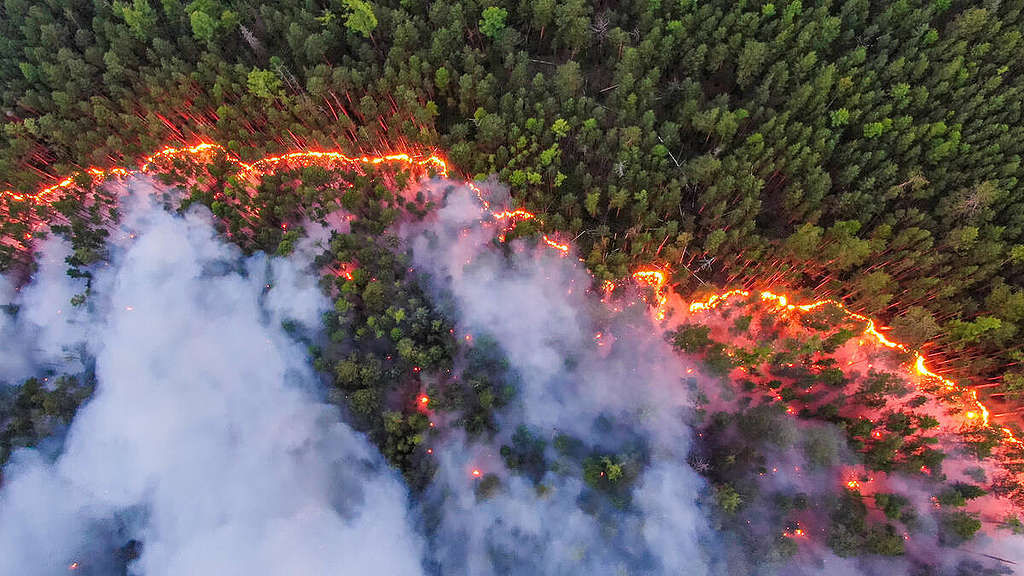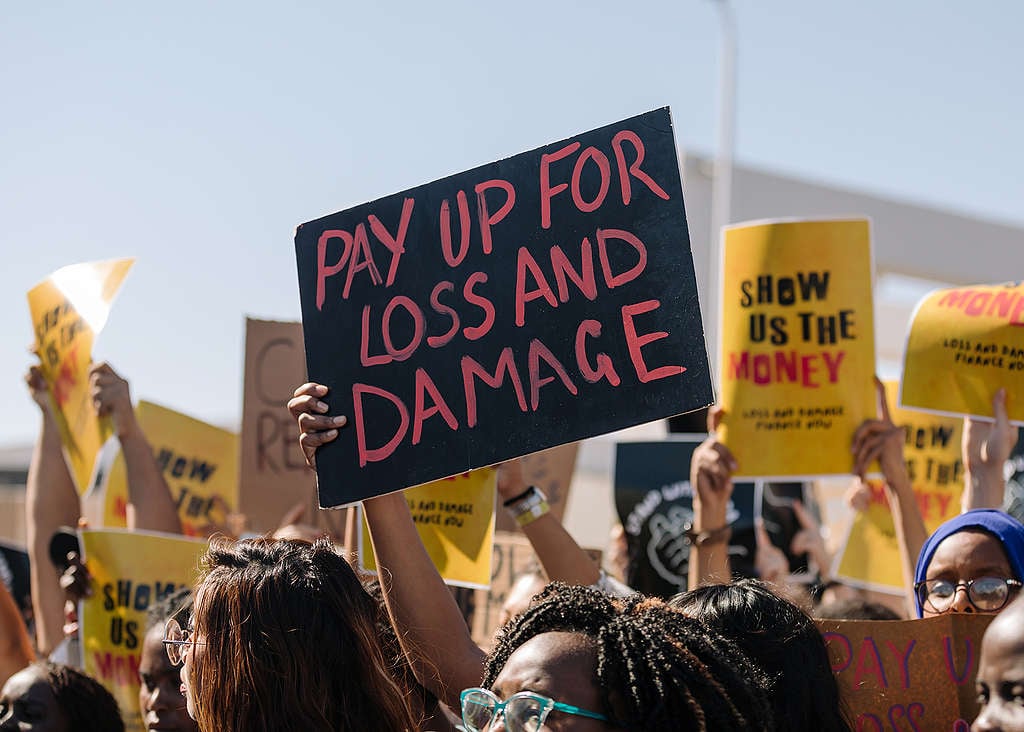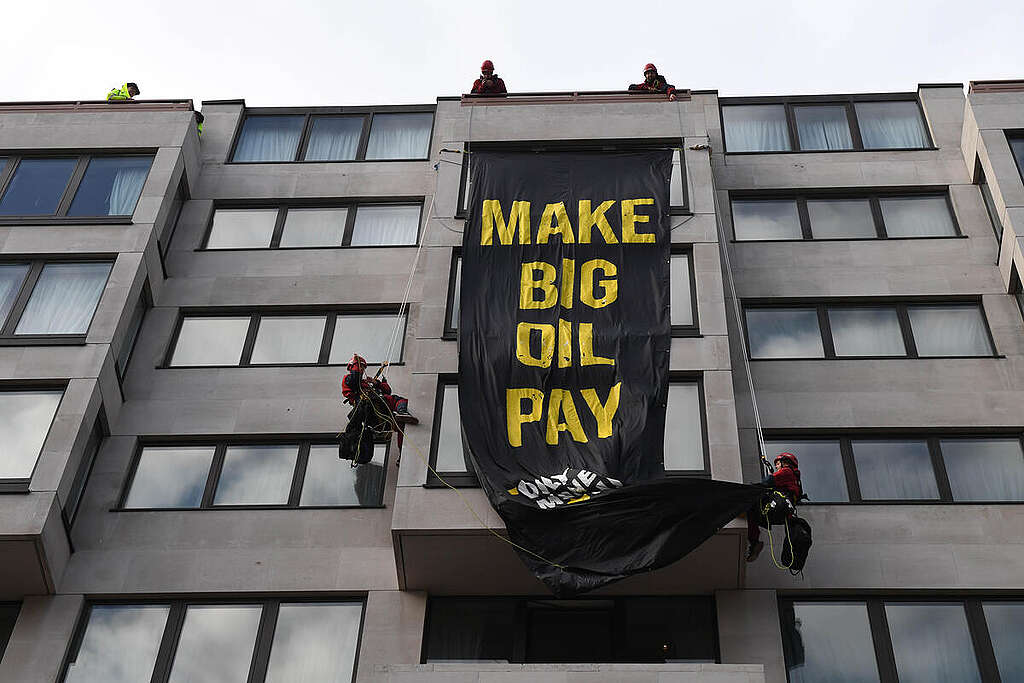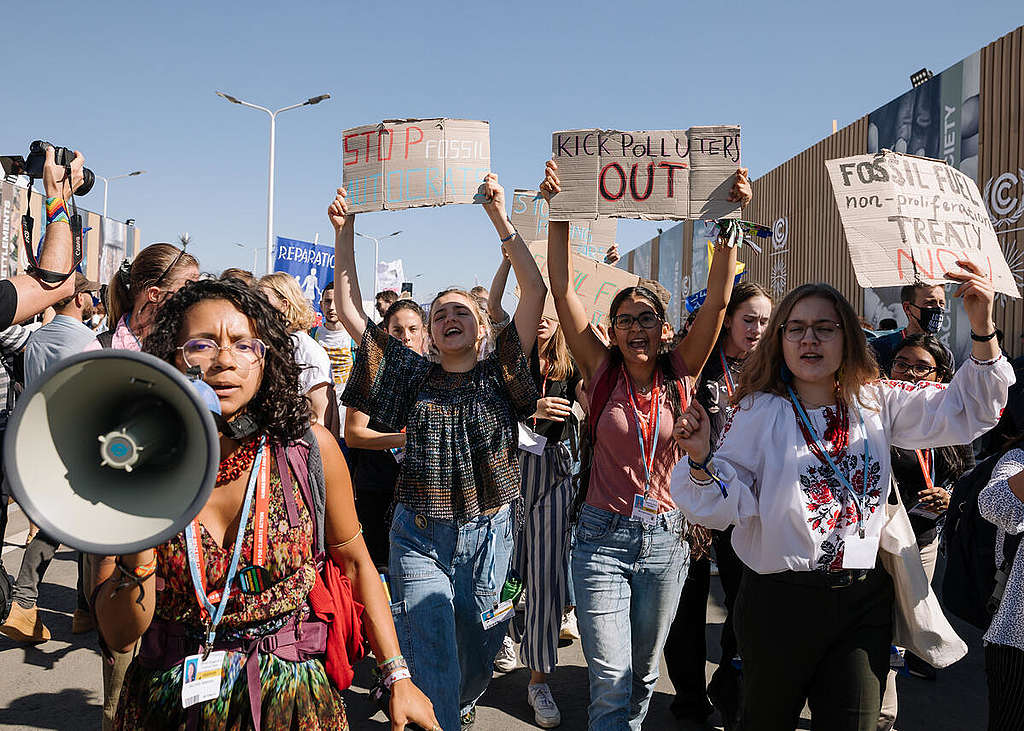There’s been a steady flow of announcements coming from the sun-baked COP28 over the last few days. Pledges and announcements that hold the promise of change, but also reveal the stark challenges we face in our fight for a sustainable future.
As world leaders head home with a trail of media in their wake, let’s assess what’s happened so far and what needs to happen in the coming days to avert further climate chaos.
Calls for accessible, long-term funding and a balanced approach between climate action and development have been heard, particularly from developing nations. But we still need clear commitments, including a fossil fuel phase out to prevent further climate change impacts.
 Forest Fires in Siberia. © Greenpeace
Forest Fires in Siberia. © GreenpeaceThere’s been some really good progress on loss and damage, with the operationalisation of the fund agreed at COP27. But while this fund is a crucial initial move to aid communities that have contributed the least but are among the most impacted by the climate crisis, it lacks the funds they truly require. So far pledges total just over $650 million, a pittance compared to the $219 billion that oil and gas companies earned in 2022. The source of permanent funding remains uncertain, and in order to help achieve climate justice, the biggest contributors to climate change, should lead the financing. That’s not limited to the wealthiest nations but also the fossil fuel corporations, which have profited from climate destruction.
The pledges made to the Green Climate Fund (GCF) during the World Leaders Summit mark an encouraging milestone. The replenishment total of $12.7 billion showcases unprecedented support for climate resilience and mitigation. However, uncertainties remain about the actual nature of so-called newly committed funds.
 Climate champions show solidarity with communities who are experiencing climate impacts in the global south. Campaigners demand that polluting companies and countries pay their fair share to repair climate damage. © Marie Jacquemin / Greenpeace
Climate champions show solidarity with communities who are experiencing climate impacts in the global south. Campaigners demand that polluting companies and countries pay their fair share to repair climate damage. © Marie Jacquemin / GreenpeaceIn a major development, 118 countries have agreed to triple renewable energy generation and to double energy efficiency improvements by 2030, under the Global Renewable Energy and Energy Efficiency Pledge, led by the UAE and the EU. The world is uniting on solutions and it’s beautiful to see. The future will be powered by solar and wind, but it won’t happen fast enough unless governments regulate fossil fuels out of the way.
In another nod to the urgency of transitioning away from fossil fuels, critical initiatives like the Powering Past Coal Alliance have gained momentum. Several countries have committed to a moratorium on new unabated coal plants and aim to phase out existing ones. The launch of the Coal Transition Accelerator presents an avenue to speed up the shift from coal to cleaner alternatives.
Then there’s the embarrassing stuff. The voluntary Oil and Gas Decarbonisation Charter, led by the UAE, is a smokescreen. A glossy facade masking the true responsibility of the biggest polluters and profiters. The oil and gas industry can’t be trusted to manage their own decline and need to be regulated to change.
 Hundreds of demonstrators including Swedish environmentalist Greta Thunberg gather in front of a Mayfair hotel to protest against the influence of the fossil fuel industry on UK and global climate politics.
Hundreds of demonstrators including Swedish environmentalist Greta Thunberg gather in front of a Mayfair hotel to protest against the influence of the fossil fuel industry on UK and global climate politics. Now that the leaders and their entourages have jetted off to their capitals, what comes next? Negotiations on the actual, formal outcomes kick into gear. The renewable energy and energy efficiency targets must be incorporated into the official, negotiated decisions, and coupled with an agreement on a fair and fast fossil fuel phase out.
Amid the circus-like atmosphere of COP28, Greenpeace’s stance remains unwavering: the era of relying on fossil fuels must come to an end. The devastating impact of the climate crisis, disproportionately affecting vulnerable communities, necessitates an immediate response from world leaders. The time for action is now.
 Climate champions protest to show solidarity with communities who are experiencing climate impacts in the global south. Campaigners demand that polluting companies and countries pay their fair share to repair climate damage © Marie Jacquemin / Greenpeace
Climate champions protest to show solidarity with communities who are experiencing climate impacts in the global south. Campaigners demand that polluting companies and countries pay their fair share to repair climate damage © Marie Jacquemin / GreenpeaceCOP28 represents a critical moment to safeguard our planet. To fulfill the commitments of the Paris Agreement and secure a sustainable future, leaders must acknowledge the imperative to transition away from fossil fuels.
Martin Zavan is the Communications Lead for the Make Polluters Pay Campaign with Greenpeace International.

 11 months ago
304
11 months ago
304


